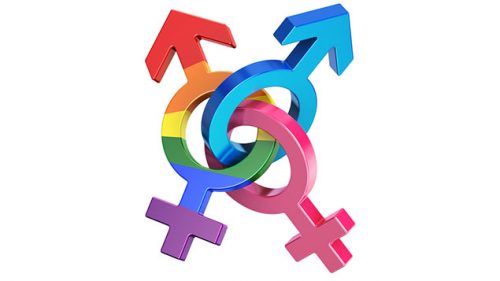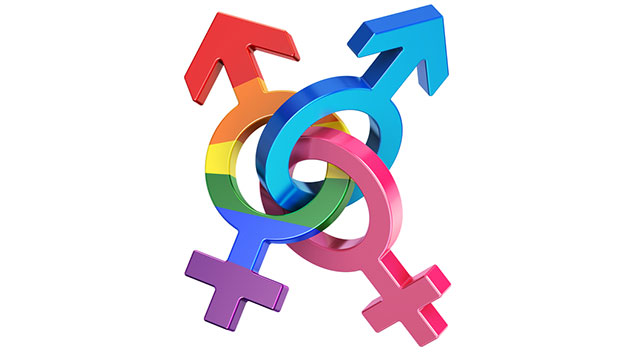Gender non-binary and gender fluid people are covered by the ‘protected characteristic’ of gender reassignment under the Equality Act 2010.
The Equality Act came into force in October 2010 and replaces all previous equality legislation in England, Scotland and Wales. (Northern Ireland is not covered by the Equality Act and has its own separate Acts).
Here we look in more detail at the ‘protected characteristic’ of gender reassignment, as this has been expanded to cover gender non-binary and gender fluid people due to an important Tribunal ruling in 2020.
This Equality Act applies equally to all employees, workers and those self-employed who personally to do the work they are contracted for.
Gender reassignment
The Equality Act says that “a person has the protected characteristic of gender reassignment if the person is proposing to undergo, is undergoing, or has undergone, a process (or part of a process) for the purpose of reassigning the person’s sex by changing physiological or other attributes of sex”.
It is therefore discrimination to treat transgender people less favourably (i.e. someone who doesn’t identify with the gender they were assigned at birth) – for example, if they are absent from work because of gender reassignment surgery then you must treat them the same as you would treat any other worker who is absent because they were ill or injured. Medical procedures for gender reassignment such as hormone treatment cannot be treated as a ‘lifestyle’ choice.
You must also, for example, let transgender staff choose the toilet facilities they wish to use. If other members of staff object to this, this could potentially be discriminatory.
If you employ someone who has transitioned to another gender, you must keep this information confidential and ensure that any records which refer to their gender identity at birth are kept in a safe place. This information constitutes ‘special category data’ under the General Data Protection Regulations 2018. If an employer needs to retain information that’s related to the transition (such as absence records for medical reasons), their birth certificate or documentation of a name change this should be kept confidential; and computer databases/systems should only reflect the current situation of their name/gender and contain no ‘old’ data.
It’s a criminal offence for any member of staff who has found protected information regarding someone’s gender identity to disclose that information to another person.
In 2020, a landmark tribunal case confirmed that gender non-binary, or gender fluid, people are also protected under the definition of gender reassignment. Until this judgement it was not clear whether the Equality Act covered people who did not identify as either male or female (as transgender people do), but identify as neither of these categories, or fluctuate between them. In Ms R Taylor v Jaguar Land Rover Ltd, the Employment Tribunal found that Taylor, an engineer who faced insults and jokes at work, after identiyfing as gender fluid, had been harassed, discriminated against and had been constructively unfairly dismissed.
This is an important decision because it makes it clear that by law, employers should not treat gender non-binary workers (who are not undergoing medical transition) less favourably than other workers.
Practically, what does this mean?
- Employers should increase their awareness of the terminology used and what it means,
- Employers should review their policies, procedures and forms to make sure the language used is appropriate,
- For example, look at any dress-code policies, do they refer to acceptable dress for ‘male’ and ‘female’ workers?; if they do this should be re-drafted so there is one policy for all workers. If you provide staff with uniforms you will need to discuss their preferences with the worker.
- Do policies, contracts, documents say “he” and “she”; if they do they should be re-drafted to say “you”.
- Look at forms you use (for recruitment and otherwise), do you ask them to select ‘male’, ‘female’ or give a title (Mr, Mrs, Miss) – if so give an ‘other’ free text option.
- Do you provide gender-neutral toilets?
If you need any help with this please talk to The HR Kiosk.



[…] You also need to consider staff who are gender non-binary or gender fluid when writing your dress code – see more details here. […]